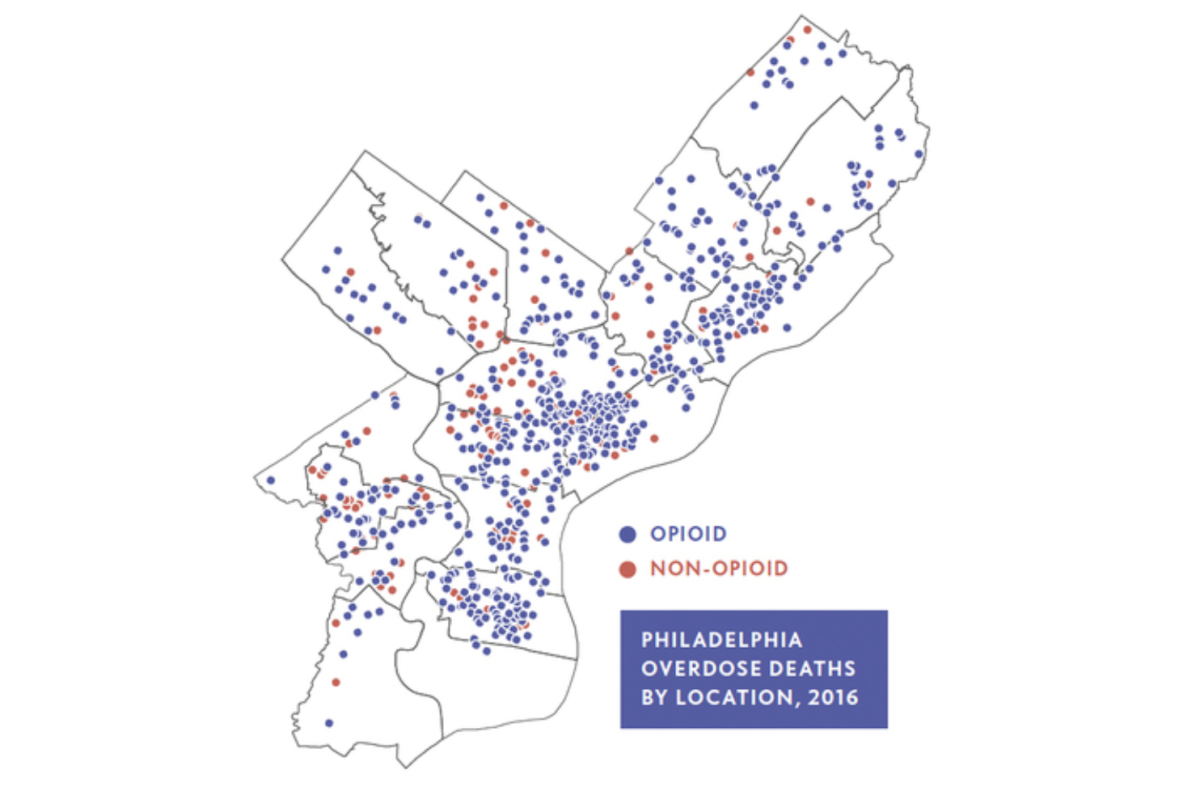The Institute of Clinical Bioethics (ICB) announced the creation of the Center for Addiction and Recovery Education (CARE) on Nov. 12.
Stephen Forzato will be the first director of the newly established center, which will be housed at St. Joe’s. Forzato formerly worked as an undercover agent for the Montgomery County’s district attorney.
At St. Joe’s, Forzato’s office is tucked away in a corridor on the first floor of Barbelin Hall.
“I’m used to being hidden,” Forzato joked. “I’ve been undercover for pretty much my whole life.”
Forzato’s role with CARE is a continuation of the efforts he has been part of his whole life: tackling addiction. Forzato spent much of his time undercover interacting with drug dealers and buyers.
“I got a bird’s-eye view of the drug scene from wiretapping, undercover work, interviewing hundreds of people involved in the drug trade,” Forzato said. “Over time I learned about the drug epidemic.”
Forzato recalled one particular memory when he responded to an overdose death of a young man, seeing his lifeless body and the residue of the heroin on his bureau. It was that scene, and others he had witnessed before, that eventually pushed him out of his undercover role and into his current position.
“Clearly, St. Joe’s needs to consider making a priority the epicenter [Kensington] that’s only 20 minutes away,” Forzato said. “There’s going to be work that we will do with students, with researchers, with policy thought, about how to address the opioid crisis in our backyard.”

PHOTO COURTESY OF STEVE FORZATO
The new center, fully funded by benefactors, will examine education, research, policy and community engagement on all types of addiction. It will serve as an arm of the ICB, which is headed by Peter Clark, S.J.
Both Clark and Forzato have spent years looking at ways to tackle addiction, particularly the opioid epidemic in Philadelphia. In 2018, 1,116 Philadelphians died from overdose, according to the Philadelphia Department of Public Health.
Forzato said the main goal of CARE is to work actively within the St. Joe’s community as well as the surrounding areas on issues of addiction.
“The bottom line with what we do here at St. Joe’s [with CARE] is we want to raise awareness,” Forzato said. “By raising awareness and keeping people interested in the topic and keeping the discussion open, I think we can share the facts that will help prevent new initiates to the heroin and opioid use and also step up efforts on getting people into treatment.”
Clark also highlighted tackling alcohol addiction as another priority of CARE. He said the deaths surrounding alcohol are “one of the best kept secrets.”
“There is an initiative of possibly starting a sober house on campus,” Clark said. “This is a very broad center so it’s going to encompass many different types of addictions.We’re in the process of investigation to see if we can start such a house as of September.”
Mike Fontana ’20, a fellow of the ICB, said he sees CARE as a great opportunity to act as a resource for students, much like Counseling and Psychological Services (CAPS) does.
“College campuses are a large component where addiction mostly goes unnoticed because of the culture around alcohol, drugs, social activities on campuses,” Fontana said, adding that starting an initiative to address addiction on campus is a great opportunity for students to spread awareness.
Forzato, who went to graduate school at St. Joe’s, said he thinks CARE aligns with the university and Jesuit mission.
“There are many universities addressing this crisis,” Forzato said. “It is the number one public health crisis, not only in Pennsylvania, but nationally. We are unique. We have mission-driven university that cares about the whole person.”
After spending much of his adult life in law enforcement, Forzato said he believes awareness is a priority to reduce stigma.
“They’re really not criminals,” Forzato said. “They really aren’t. They may break the law by possessing drugs or needles, but that’s all they’re doing.”














































